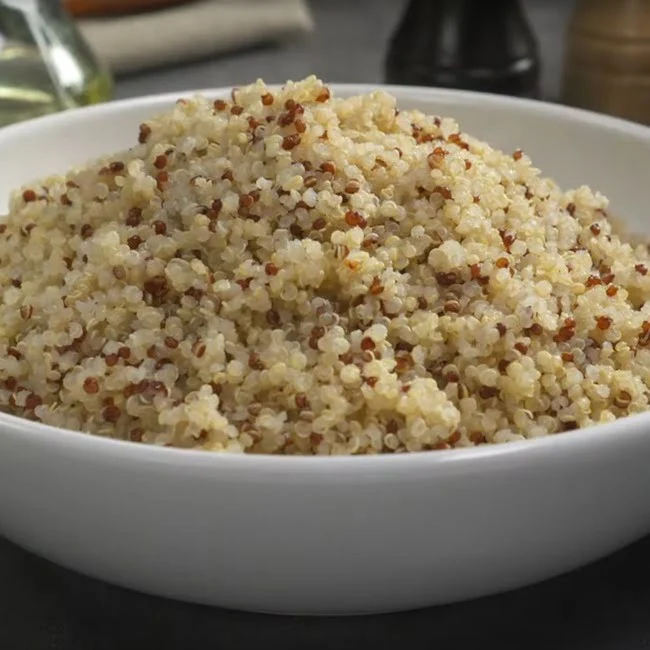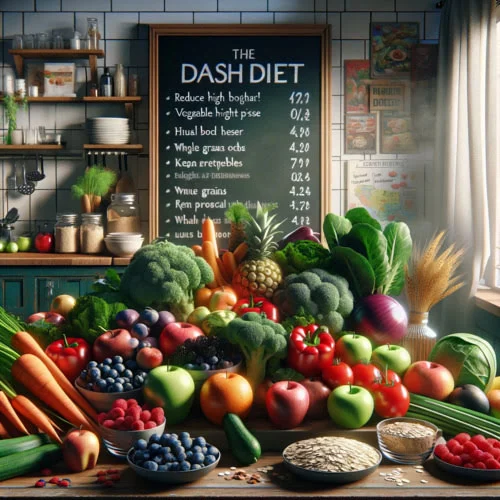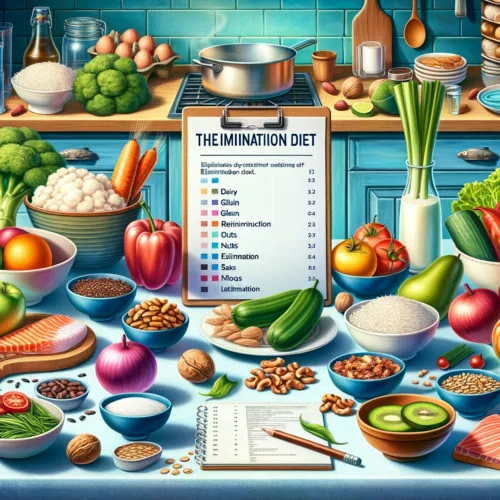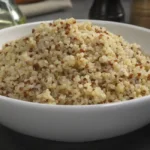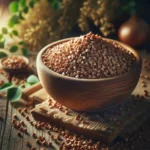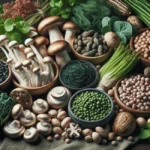Quinoa: a grain that will transform your diet
Hello, dear readers! Today I want to share with you valuable information about quinoa seeds, this amazing product that will enrich your diet and help you take care of your health. The quinoa benefits of this cereal have been known since ancient history, and I am proud to be able to tell you about its amazing properties and uses. If you are striving for a healthier lifestyle and want to diversify your diet, quinoa will be the perfect choice.
In our fast-paced times, proper nutrition is becoming more and more important. We are looking for foods that can fulfill our nutrient needs as well as promote health and vigor. Quinoa seeds have become an essential part of today’s healthy diet due to their unique richness in protein and multiple vitamins and minerals. This product is suitable for vegans and vegetarians as well as anyone looking to improve their diet.
The purpose of this article is to introduce you to the many benefits of quinoa seeds by providing you with information about its nutritional value, health benefits and preparation methods. I will help you understand why quinoa benefits its deserves a place on your plate, and how you can integrate it into your daily diet. Ready to learn more about the wonderful quinoa seeds? Let’s get our research started!
Origin of quinoa
Quinoa seeds, or simply “quinoa,” have a fascinating history going back to ancient times. This grain originates from regions of South America, primarily Peru, Bolivia, and Ecuador. The most interesting part is that quinoa was one of the key cultural foods of the Incas and Aztecs. These civilizations valued quinoa for its nutritional value and its ability to provide energy in extreme conditions, making it popular in times of long treks and battles.
Historical food use
Quinoa was an integral part of the ancient peoples of South America. Quinoa seeds were prepared in variations of soups, porridges and breads. It served as a base for many dishes and was used as a foundation for the diet. With their high protein content, important amino acids and many vitamins and minerals, quinoa seeds were a valuable source of nutrition, especially for mountain dwellers.
Renewed interest in quinoa in modern times
Although quinoa was an invariable component of the diet of the ancient Incas and Aztecs, it remained little known in other parts of the world for a long time. In recent decades, however, interest in quinoa has skyrocketed, and the grain has become a symbol of healthy eating and sustainable agriculture. Many people around the world have discovered its incredible nutritional and medicinal properties, and quinoa has become a key staple in the diet of those seeking a healthy lifestyle. In this section, we explore how the past and present merge in quinoa seeds, making them an important part of today’s healthy diet.
Quinoa benefits and nutritional value
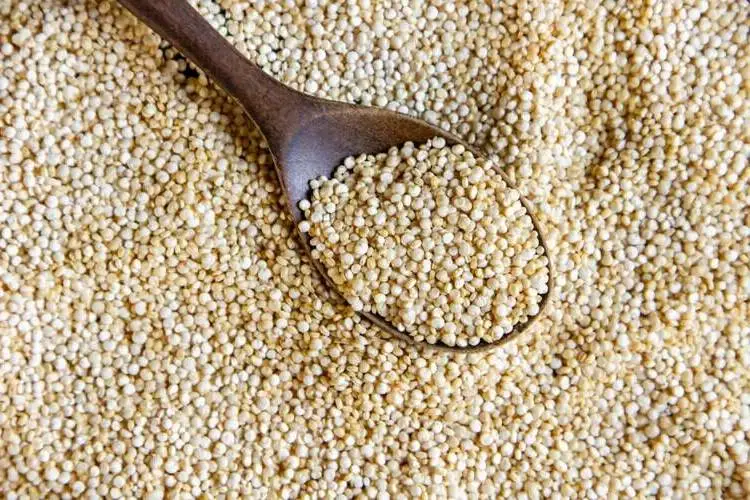
Quinoa’s nutritional value and benefits vary depending on its specific variety and cooking method, but in general quinoa is considered a very nutritious food. Here are the approximate nutritional characteristics of 100 grams of raw quinoa:
- Calories: Approximately 120 kcal.
- Carbohydrates: About 21 g, including dietary fiber.
- Protein: Approximately 4 g.
- Fats: About 2 g.
- Dietary fiber: Approximately 2.8 g.
- Vitamins: Quinoa is rich in vitamins, including B vitamins (including folic acid) and vitamin E.
- Minerals: Contains significant amounts of magnesium, phosphorus, manganese and iron.
- Amino Acids: Quinoa is considered a good source of all nine essential amino acids, making it a complete source of protein, especially for vegetarians and vegans.
- Omega-3 fatty acids: Contains small amounts of omega-3 fatty acids.
- Antioxidants: Quinoa also contains antioxidants such as quercetin and caffeic acid.
Protein: quality and quantity
Quinoa is a veritable treasure trove of protein. If you’re looking to incorporate more plant-based sources of protein into your diet, quinoa seeds are your trusted ally. The quality of protein in quinoa is comparable to animal protein and includes all nine important amino acids, making it a complete protein source. This is especially important for vegans and vegetarians, who can use quinoa to provide the body with everything it needs.
Vitamins and minerals
Quinoa, its benefits are not only because this cereal is rich in protein, but also in the presence of vitamins and minerals such as magnesium, manganese, phosphorus, iron and vitamin B6. These nutrients play an important role in keeping the body healthy and functioning. Magnesium, for example, is essential for maintaining a healthy heart, while phosphorus is involved in strengthening bones. Thus, quinoa not only fulfills your protein needs but also enriches your body with many important micronutrients.
Useful amino acids
Quinoa is known for its content of beneficial amino acids including lysine, methionine and cystine. These substances play an important role in maintaining your immunity, growth and tissue repair. Lysine, for example, promotes collagen formation, which makes your skin firm and healthy. Methionine and cystine, in turn, are involved in various biochemical processes, including detoxification of the body.
Dietary fiber
Quinoa seeds are also rich in dietary fiber, making them an ideal food to keep your digestive system functioning properly. Dietary fiber helps prevent constipation, blood cholesterol levels and even blood sugar levels. When you consume quinoa on a regular basis, you will feel a burst of energy and lightness in your stomach. This aspect makes quinoa an indispensable product in the diet of those who care about their health and want to maintain an optimal weight.
Quinoa seeds are truly unique in their nutritional value and ability to improve your health. Don’t miss the chance to include them in your diet and enjoy all these benefits.
Quinoa is a valuable source of nutrients, and its edible leaves and seeds are widely used in food. It is also gluten-free, making it suitable for people with celiac disease or gluten sensitivity.
Quinoa benefits and health
Quinoa (quinoa) is considered one of the most nutritious and healthy foods from the plant world.
Cardiovascular benefits
Quinoa seeds can be your trusted ally in maintaining a healthy heart. They are rich in magnesium, potassium and antioxidants, which helps lower blood pressure and improve blood circulation. Regular consumption of quinoa can reduce the risk of cardiovascular disease, including stroke and hypertension.
Weight control and satiety
The quinoa benefits of this product make it ideal for those seeking weight control and long-term satiety. Due to its high protein and dietary fiber content, quinoa seeds create a feeling of satiety for a long time, which helps to avoid snacking and reduce calorie intake. This aspect makes quinoa a great choice for those who want to lose excess weight or maintain an optimal weight.
Antioxidants and inflammation control
Quinoa is also rich in antioxidants such as quercetin and caffeic acid, which help the body fight inflammation and free radicals. These antioxidants help reduce the risk of developing chronic diseases such as cancer and heart disease. Therefore, eating quinoa can help maintain your overall health.
Suitable for various diets
Another important benefit of quinoa is its versatility in nutrition. It is suitable for a variety of dietary restrictions, including vegan, vegetarian, gluten-free, and lactase-free diets. This makes quinoa an ideal choice for a wide range of people, regardless of their dietary preferences and needs.
Quinoa seeds are more than just a food product, they provide us with unique health benefits. You can use them to strengthen your heart, support weight management, fight inflammation, and enjoy variety in your diet.
Cooking and using quinoa is fairly simple, and it can be incorporated into your daily diet in a variety of ways. Here are the basic cooking methods, recipes, and ways to integrate quinoa into your diet:
How to cook quinoa
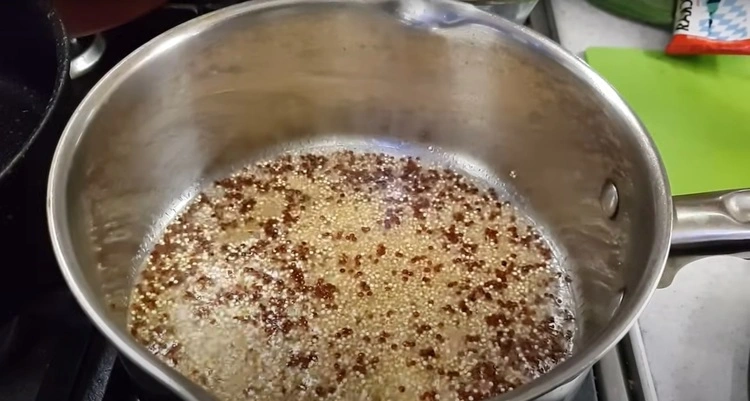
1. Rinsing Quinoa: Before cooking quinoa, be sure to rinse it under cold water to remove the bitter saponins that can impart a bitter flavor. Many quinoa packets are already pre-washed, but it’s best to check on the package.
2. Boiling : The usual way to prepare quinoa is by boiling. Take 1 part quinoa and 2 parts water (or broth), bring to a boil, then turn down the heat and cook with the lid closed for about 15-20 minutes until all the moisture is absorbed. Quinoa is ready when the grains are tender.
3. Steamer: Quinoa can also be cooked using a steamer. Like rice, water is added at the bottom and quinoa is placed in the top compartment of the steamer.
4. Frying: Quinoa can be fried in a dry pan before cooking to give it a richer flavor.
Recipes and dishes with quinoa
1. Quinoa salad: Mix cooked quinoa with chopped fresh vegetables (tomatoes, cucumbers, spinach, etc.), add olive oil, lemon juice, fresh herbs and season to taste.
2. Quinoa with nuts and dried fruits: Add quinoa to hot milk (or milk substitute), then you can stir nuts, dried berries and honey into the mixture.
3. Quinoa with vegetables and stewed fish or chicken breast: Serve quinoa with cooked vegetables (broccoli, carrots, peas) and a piece of fried fish or chicken.
4. Quinoa Cutlets : Create quinoa cutlets by mixing it with egg, bread crumbs, spices and chopped vegetables. Fry in a frying pan until golden crust.
How to incorporate quinoa into your daily diet
- – Replace rice or potatoes with quinoa in dishes.
- – Add quinoa to salads, soups and porridge.
- – Serve quinoa with mushrooms as a side dish.
- – Use quinoa in baking by adding it to breads or muffins.
- – Create quinoa burgers or quinoa meat balls instead of their meat counterparts.
- – Add quinoa to omelets or breakfast cereal.
Quinoa is a versatile product that can be used in a variety of dishes and contributes to the diversity of the diet by enriching it with nutrients.
Cautions and contraindications
Quinoa is generally considered a safe and nutritious food, and many people have no problems eating it. However, there are a few cautions and contraindications to watch out for
Who should be careful with quinoa
Despite the many benefits that quinoa seeds provide, they can cause certain problems for some people. There are several categories of people who should be careful when including quinoa in their diet:
1. people with quinoa allergies: Although allergies to quinoa are rare, they are still possible. If you or your child has known allergic reactions to foods, it is important to consult your doctor before introducing quinoa into your diet.
2 People with digestive problems: Some people may have difficulty digesting quinoa due to its content of anti-nutrients such as phytic acid. These substances can interfere with the absorption of certain minerals. In such cases, pre-treating quinoa by rinsing and soaking may help.
3 People taking medications: Quinoa may interact with certain medications. If you are taking any medications, it is important to consult your doctor or pharmacist about possible interactions.
Potential allergic reactions
Although quinoa allergies are rare, they can still happen. Signs of an allergic reaction can include itching, rashes, swelling, difficulty breathing, and even anaphylactic shock. If you or your child notices any of these symptoms after eating quinoa, contact your doctor immediately.
By following the above cautions and recommendations, you will be able to enjoy all the benefits of quinoa and minimize the risks of potential problems. It is important to always consult your doctor, especially if you have any pre-existing medical conditions or allergies.
Summarizing
In conclusion, I would like to emphasize that quinoa seeds are not just a trendy food innovation, but a truly valuable product that contributes to your health and nutritional enrichment. With their unique nutritional value, health benefits and versatility, quinoa seeds deserve their place on your plate.
We reviewed quinoa’s history, benefits, origins, and ancient traditions of use. We discussed the richness of quinoa seeds in protein, vitamins, minerals, amino acids and dietary fiber. You learned about the benefits of quinoa for heart health, weight control, inflammation control and its versatility in a variety of diets.
Quinoa seeds can be an essential ingredient in your daily diet. They provide your body with essential nutrients, help maintain heart health, control weight, fight inflammation and strengthen your immune system. Quinoa’s benefits make it suitable for a variety of diets and dietary restrictions, making it accessible to a wide range of people.
So feel free to incorporate quinoa into your diet, experiment with a variety of recipes, and enjoy all of its benefits. Your health and your nutrition deserve it. Always remember to measure and carefully monitor your body’s response. Good luck on your journey to a healthy lifestyle and a varied diet!
Quinoa seeds – frequent questions
Quinoa is a grain originating from regions of South America, mainly Peru, Bolivia and Ecuador.
Quinoa seeds are rich in protein, vitamins, minerals, amino acids and dietary fiber.
Quinoa helps lower blood pressure and improve blood circulation, reducing the risk of cardiovascular disease.
High in protein and dietary fiber, quinoa seeds create a feeling of satiety, helping you control your appetite and avoid snacking.
The antioxidants in quinoa help reduce inflammation and prevent the development of chronic diseases.
People with quinoa allergies, digestive problems, or those taking medications should be cautious when consuming quinoa
Quinoa seeds can be used in a variety of recipes such as salads, porridge, soups and baked goods, making them a versatile component of a healthy diet.

